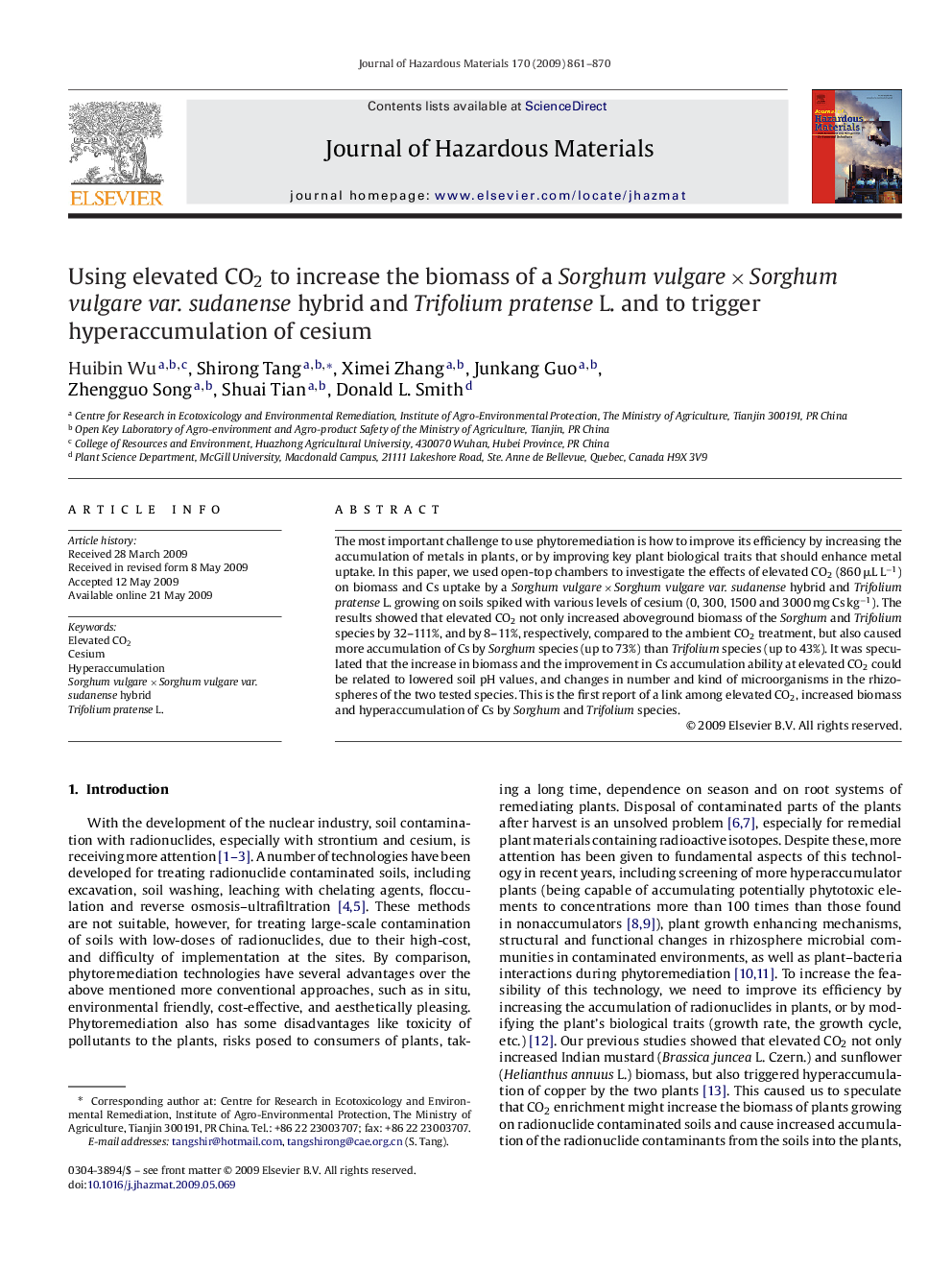| Article ID | Journal | Published Year | Pages | File Type |
|---|---|---|---|---|
| 581245 | Journal of Hazardous Materials | 2009 | 10 Pages |
Abstract
The most important challenge to use phytoremediation is how to improve its efficiency by increasing the accumulation of metals in plants, or by improving key plant biological traits that should enhance metal uptake. In this paper, we used open-top chambers to investigate the effects of elevated CO2 (860 μL Lâ1) on biomass and Cs uptake by a Sorghum vulgare Ã Sorghum vulgare var. sudanense hybrid and Trifolium pratense L. growing on soils spiked with various levels of cesium (0, 300, 1500 and 3000 mg Cs kgâ1). The results showed that elevated CO2 not only increased aboveground biomass of the Sorghum and Trifolium species by 32-111%, and by 8-11%, respectively, compared to the ambient CO2 treatment, but also caused more accumulation of Cs by Sorghum species (up to 73%) than Trifolium species (up to 43%). It was speculated that the increase in biomass and the improvement in Cs accumulation ability at elevated CO2 could be related to lowered soil pH values, and changes in number and kind of microorganisms in the rhizospheres of the two tested species. This is the first report of a link among elevated CO2, increased biomass and hyperaccumulation of Cs by Sorghum and Trifolium species.
Related Topics
Physical Sciences and Engineering
Chemical Engineering
Chemical Health and Safety
Authors
Huibin Wu, Shirong Tang, Ximei Zhang, Junkang Guo, Zhengguo Song, Shuai Tian, Donald L. Smith,
